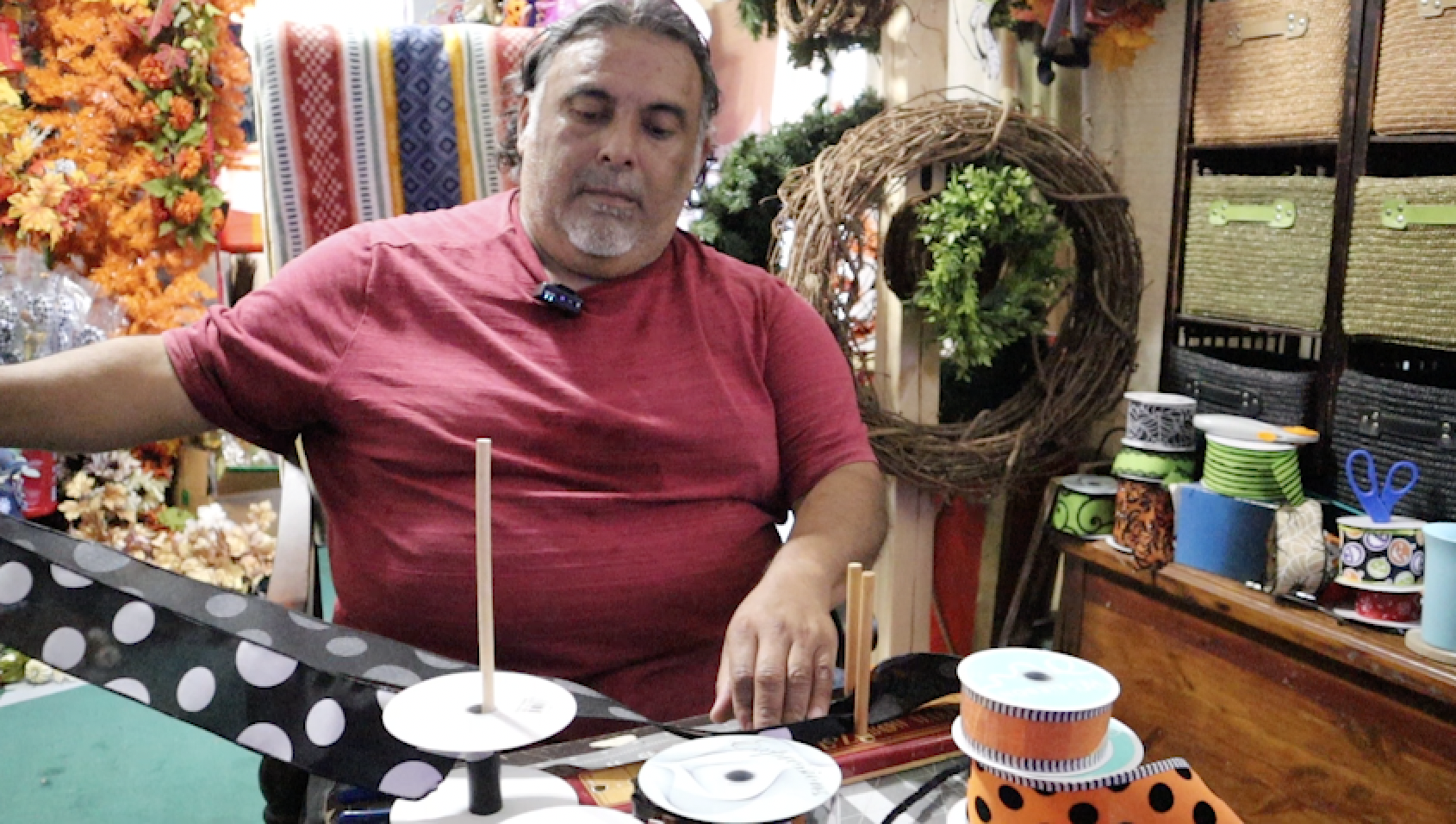
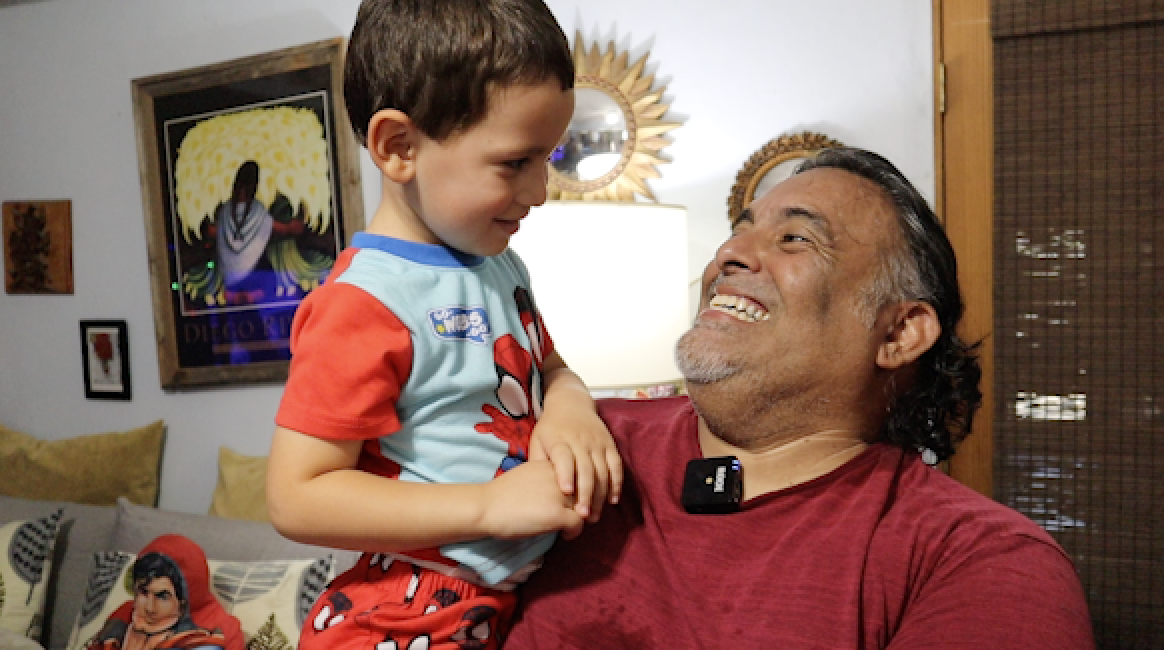
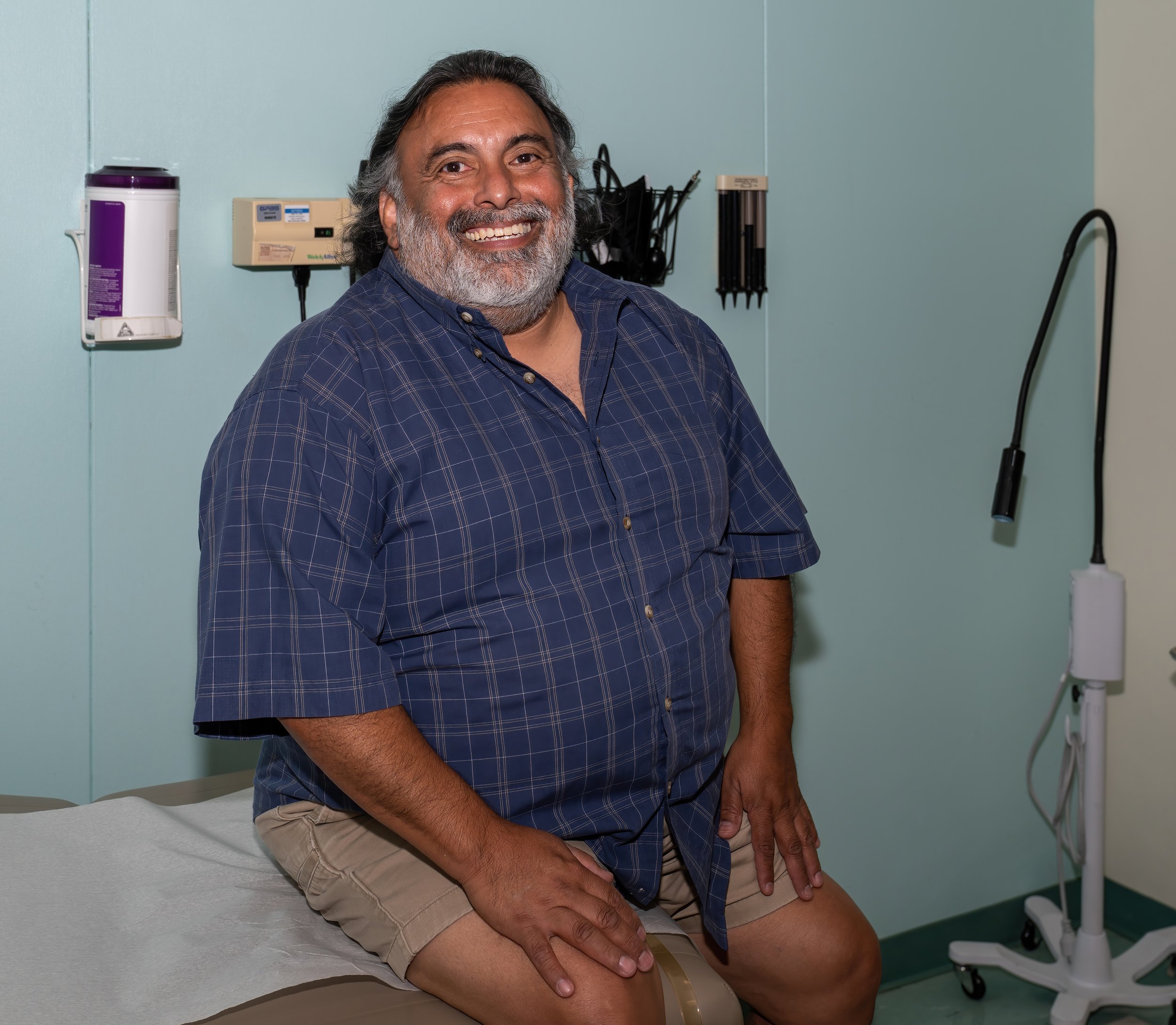
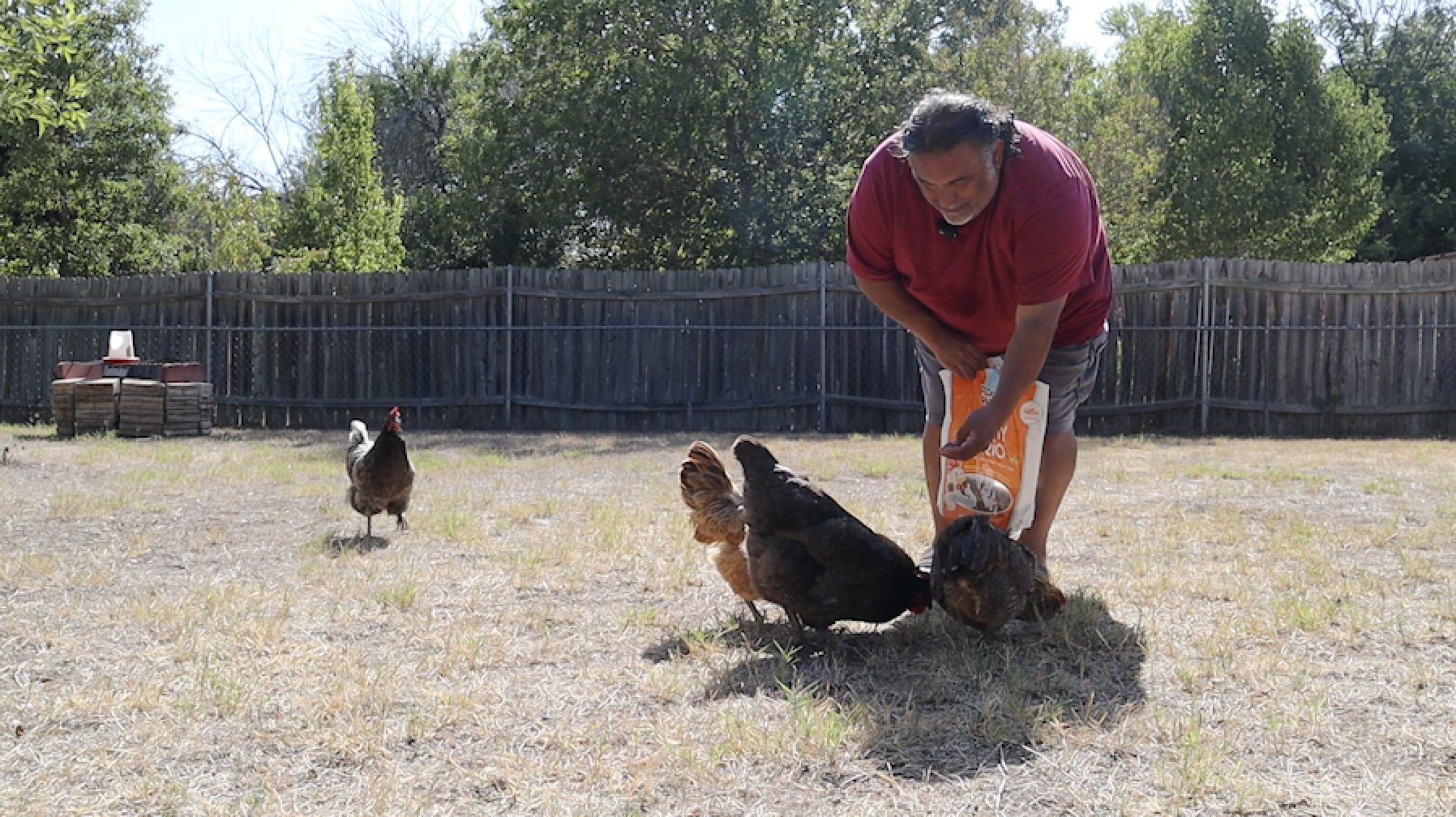
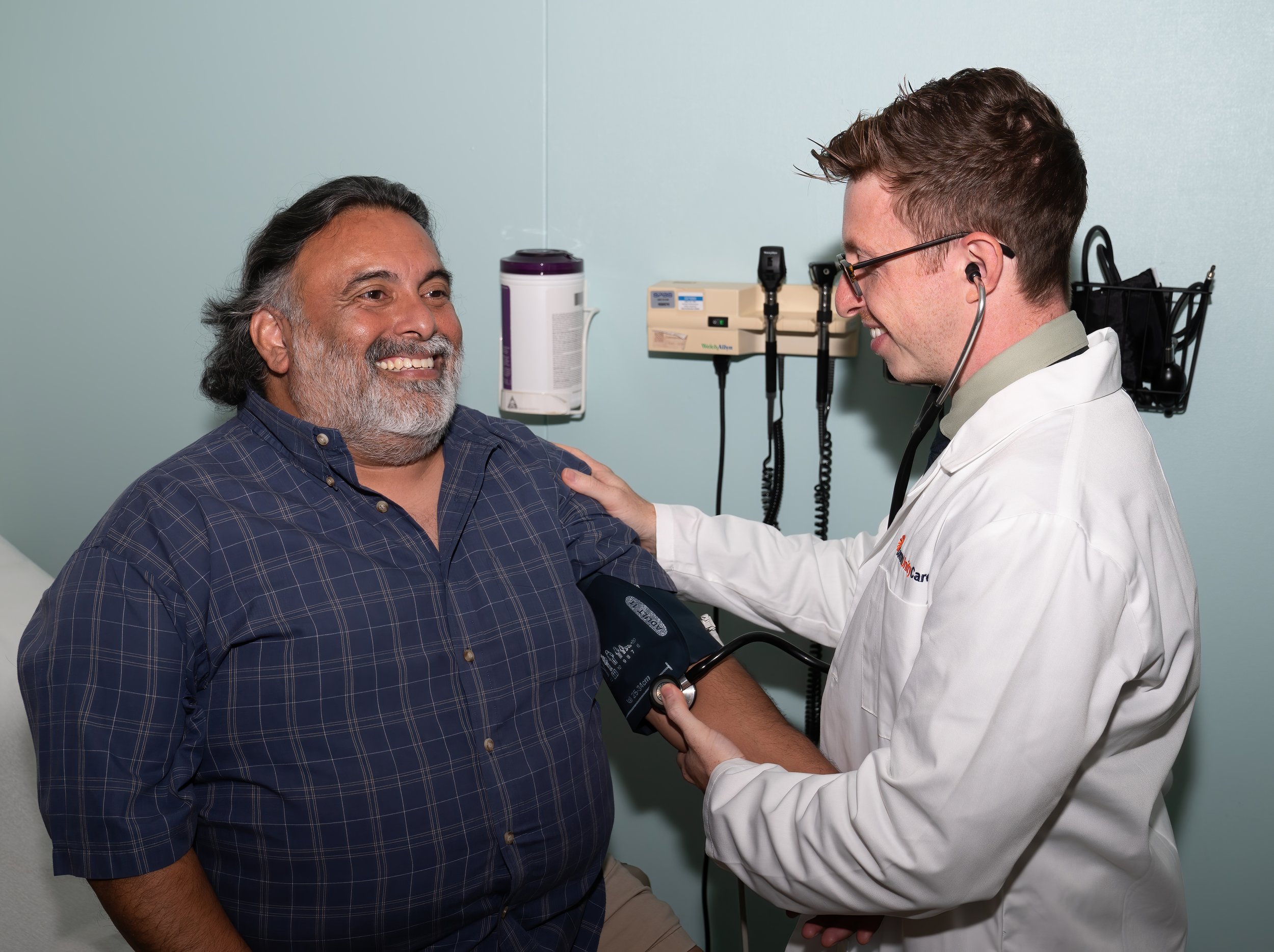

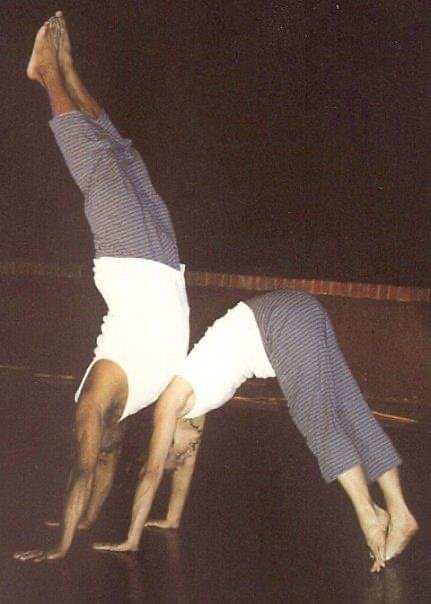
A Story of Strength: Rudy Villela
Rudy Villela is a vibrant artist whose infectious laugh and smile fill a room. Nowadays he finds joy in year-round wreath making, tending to his chickens, and spending time with his nephew. At 57 years old Villela has vivacious energy about him, but you’d never know how hard Rudy fought to live a life he was proud to have.
The Martyr
It was in 1985, at the age of 20, during a hospital visit for a surgical procedure that Villela received the diagnosis that changed his life.
“To my surprise, when the bloodwork came back, I was told that I was HIV positive.”
The first cases in the United States of what later becomes known as HIV/AIDS were reported in 1981. With a lack of effective treatment options, the mortality rates were steadily rising by 1985 when Villela received his diagnosis.
“They were calling me the martyr. I was giving everything away that I owned because there was no point in keeping anything since I was going to die. Then months went by, and I was fine. Years went by, and I was fine.”
Stigma, fear, and lack of awareness raged through headlines in the ’80s and ’90s. Villela among those terrified to find out what would happen if people discovered his diagnosis.
Seeking Treatment
It wasn’t until the early 1990s when the one friend Villela confided in about his diagnosis convinced him to seek treatment at the David Powell Health Center. Villela says he reluctantly agreed to schedule a visit and that it was the best decision he ever made.
“When I went into David Powell, I was so scared I couldn’t even say I’m HIV positive because I would start crying,” said an emotional Villela as he reminisced on the moments he decided to start fighting for his life. “I feel the energy now, the same feeling back then, but they [David Powell] made it so comfortable for me and to know this isn’t it, you can live life still.”
When Villela decided it was time to seek treatment, HIV/AIDS had just become the number one killer of men between the ages of 25 to 44, predominately gay/bisexual men.
“I saw so many people go because after they found out they gave up. It was hard to convince those affected that it was worth fighting. There was, of course, a lot of uncertainty and really no medications but I decided to not let this beat me.”
As medical advancements were being made Villela shares that he found himself in most clinical trials for treatment. Slowly but surely, he says he began to live life again with the help of David Powell.
“Not only medically were they treating me, but they were mentally outstanding for me. They know HIV can affect your mental health so with their help I was also thankfully able to seek out more therapy.”
Finding Joy in Life Again
“I did what I always wanted to do, I became a dancer. I realized this isn’t my death sentence.”
Born and raised in Austin, Texas Villela made the decision that it was finally time to live his dream. For the next several years, Villela traveled to major cities across the United States with dance groups doing what he loved.
“As a dancer, it was one of those areas in society hit really hard during the epidemic. But they embraced me and saw me as a dancer and that drove me to do more for my life.”
Villela eventually returned to Austin where he became a substitute teacher and began teaching dance to at-risk children.
Undetectable = Untransmittable (U=U)
“I’ve been undetectable for years now.”
For people living with HIV, being undetectable is the ideal health scenario. It also means you can no longer transmit the virus to a sexual partner. This is optimal information to help reduce the stigma that unfortunately still exists today.
“I love the fact there is a place I can go. They are the place I can get knowledge. They [David Powell] really brought me to a place where I could ground myself. So, thank you, David Powell,” said Villela through tears.
